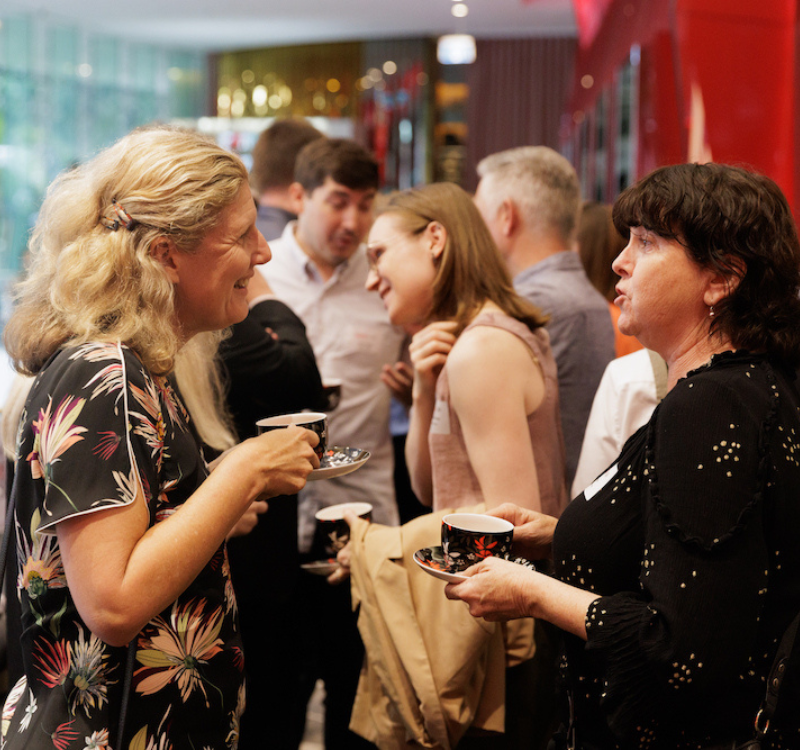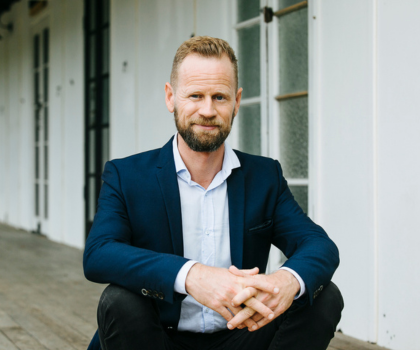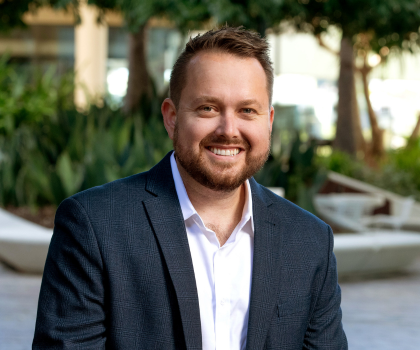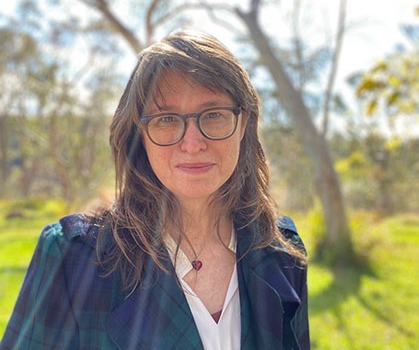
Ashlea is the Course Convenor for Leading for Sustainable People Outcomes. In this interview, Ashlea talks about what students can expect from this course, and the misconceptions surrounding emotional intelligence.
You are the Course Convenor for Leading for Sustainable People Outcomes (7916EHR). What can students expect from this course in terms of their learning experience? And how do you link to the “real world”?
This course is based on the premise that people are the biggest asset of any business and sustaining them is essential if an organisation wants to flourish. We focus on the essential role of the leader in ensuring this happens, via supporting and leveraging individuals, role modelling what is expected, and implementing policies and practices that support healthy and diverse organisational cultures.
The other key premise of this course is that being a good leader requires some serious self-reflection and self-awareness about who you are, what motivates you, how you behave, and how this translates to your people management of others.
The assessment in this course challenges students to think about how they lead/manage others who are similar and/or different to themselves, and how they could do things differently/better. There are usually some lightbulb moments for students along the way in terms of the workshop discussions and assessment.
What do you enjoy most about teaching MBA students?
I very much enjoy the level of engagement and energy in classroom discussions. It is contagious and energises me!
Time keeping is often my biggest challenge, and I think this is a good thing as it means the topics are resonating with the group. MBA students typically have a wealth of life and professional experience that they bring into the room (physically or online), and they are usually keen to share this with each other.
When there is a group of MBA students together, some amazing insights and learnings happen, and they spark off each other. My role is to put some scaffolding and frameworks around these insights/discussions, and to challenge the MBA students to think about how they could do things differently or better based on the research evidence. Sometimes this might be a bit uncomfortable, and I particularly value the MBA students who honestly reflect on how they do things or how they could do things better (based on what they are doing in the course) going forward.
Can you tell us about your education and professional journey that led you to where you are today?
I started doing accounting at university, hated it, and the only subject I liked was taught by a psychologist who talked about people and human behaviour. This resonated with me, and I transferred to a psychology degree. I then went on to do honours, a Master of Organisational Psychology and a PhD in psychology.
Along the way I did lots of interesting research assistant work. For example, I was part of a fascinating twin study with Families Australia with their twin register and another was working with 3 - 12-year-olds on their beliefs about healthy eating.
I have also lectured to veterinarian and agricultural science students on the importance of communication and people management skills with their customers and completed projects with the Australian Taxation Office which identified leaders with potential, and employee engagement.
I then moved to Griffith University as a lecturer and have been here ever since. So, I have taken the traditional route into academia but have done lots of consultancies and industry work along the way.
I find people endlessly fascinating and always struggle to understand why some in industry and academia deride ‘soft skills’ in the workplace. They are fundamental to the human experience and important workplace outcomes (including the bottom line). And are often way harder to acquire and do effectively than many ‘hard skills.’
Artificial intelligence, emotional intelligence or both? What opportunities and challenges do you foresee?
Love this question! The ultimate AI development would be the creation of robots or intelligent machines that can think and act emotionally. Our emotional skills are a long way from being replaced by robots. I think jobs that rely on these more complex, uniquely human skills, are the ones that are going to be increasingly valued in the workplace.
I am doing some research with a very talented early career researcher, Dr Hongmin (Jess) Yan on this very topic. Jess is keen to explore the extent to which employee identity is threatened (or enhanced) by intelligent machines showing different types of intelligence (mechanical, thinking or feeling) and what this means for our feelings of job security/insecurity, creativity, innovation etc.
What are the biggest misconceptions leaders have about emotional regulation/emotional intelligence?
The biggest misconception by some leaders is that they are not important skills to develop in themselves, or others. This is changing. I recently gave a workshop to a senior leadership group in a blue-collar government agency, and they embraced it. It was refreshing and it clearly resonated with them.
What leader is not dealing with their own and others' emotions (positive and negative) on a daily basis? Also, many jobs in service, hospitality and health have emotional labour requirements (a form of emotional regulation) that the research clearly shows leads to stress, burnout and attrition (i.e. employees are expected to be happy, enthusiastic, caring, sympathetic, etc., even when they don’t genuinely feel it). As researchers, we know there is a way to design work and develop certain skills that can reduce the effects of emotional labour on employees.
The other thing often overlooked is that different emotions provide lots of valuable information about what people are thinking and why they are behaving in certain ways that leaders should be tapping into. For example, fear is often linked to uncertainty and anger to unfairness or injustice.
Another misconception, probably due to some books and articles in the popular press, is that emotional intelligence (EI) is a panacea for all organisational problems. This is clearly not the case. EI (the abilities to accurately identify your own and others' emotions; and manage your own and others' emotions) is an important part of skills-based toolbox for any leader, but it is not a silver bullet. Indeed, there is a body of research that examines the dark side of EI such as when EI skills are used to to inappropriately manipulate or undermine others.
What is one thing you have recently listened to, watched, or read, that you would recommend to an MBA student?
There is so much to choose from! One of the books I often recommend to aspiring or current leaders is “Quiet: the power of introverts in a world that can’t stop talking” by Susan Cain.
There is a tendency in Western culture to value and recognise the louder ones, especially in leadership positions. I also find my MBA students overwhelmingly self-identify as extraverts. This clearly has advantages, but there are also downsides and blind spots to being strongly extraverted. Look for the quieter people in the room – they can contribute a lot.
Another classic that gives great insights into human thinking and decision-making is ‘Thinking, fast and slow’, by Daniel Kahneman.
A TED Talk I don’t tire of watching is ‘Job Crafting - Amy Wrzesniewski on creating meaning in your own work’. It discusses the importance of finding meaning in work and why individual employees view the same job very differently.
On a personal note, what are some of the things that bring you joy and fulfilment outside of your academic work?
I love anything that is outside and involves moving – running, walking or cycling – with my family and friends. My absolute happy place is multi day bushwalks, tramps or treks with my husband and a small group of friends in remote parts of Australia or New Zealand.
My family also has a very rough and untamed piece of land that we are slowly transforming (without power or phone cover). It is giving me a lot of satisfaction to learn how to use chain saws, circular saws, etc. and to build things – unplugged. It has aways been important to me to completely detach from the laptop and phone on a regular basis.
If you have a question for Ashlea, we encourage you to connect on LinkedIn.
You may also like

Meet MBA Alumnus, Dane Jacka
Dane is the founder of Pause, a business seeking to transform workplaces through mindfulness. In this interview, Dane talks about why organisations should invest in their employees mindfulness and what prompted him to get back into the classroom.

Meet MBA Student, James Hall
James is a proud Deputy Principal who recently commenced his MBA studies. In this interview, James talks about his teaching experience in a remote community and reflects on the first MBA course he completed.

Meet MBA Alumnus, Katie McRobert
Katie shares insights into how evidence-based policy solutions are countering the severe and increasingly frequent climate impacts on Australia’s farming industry.